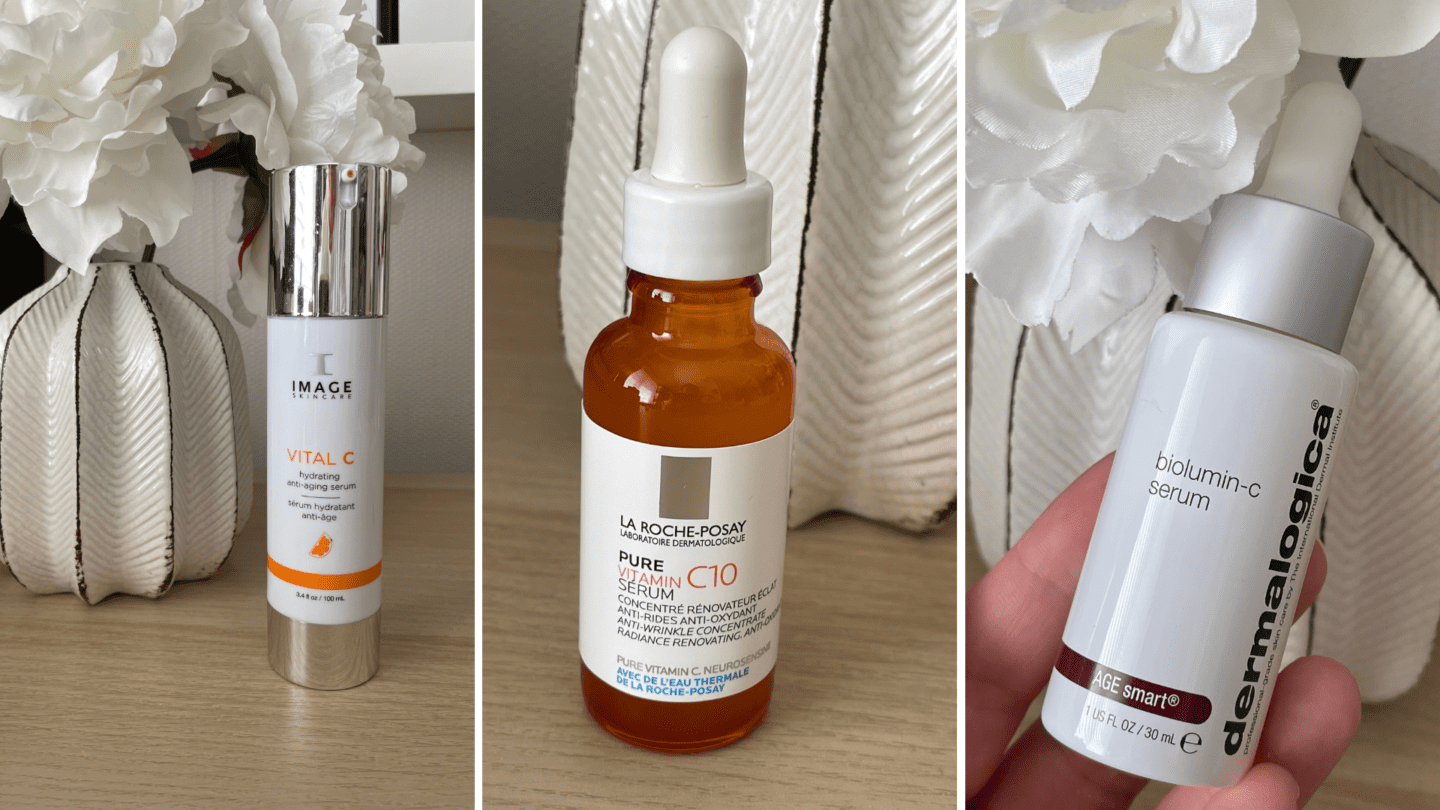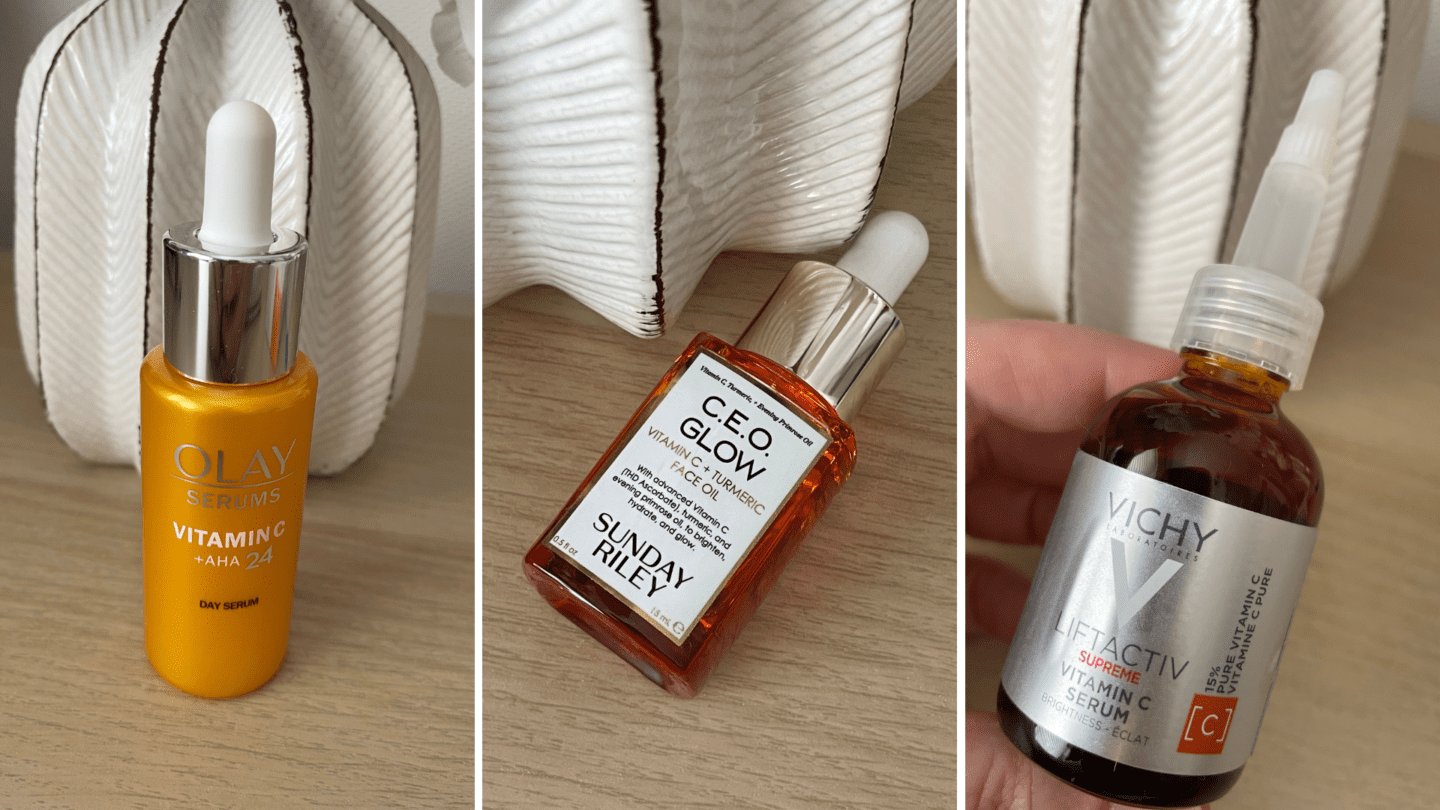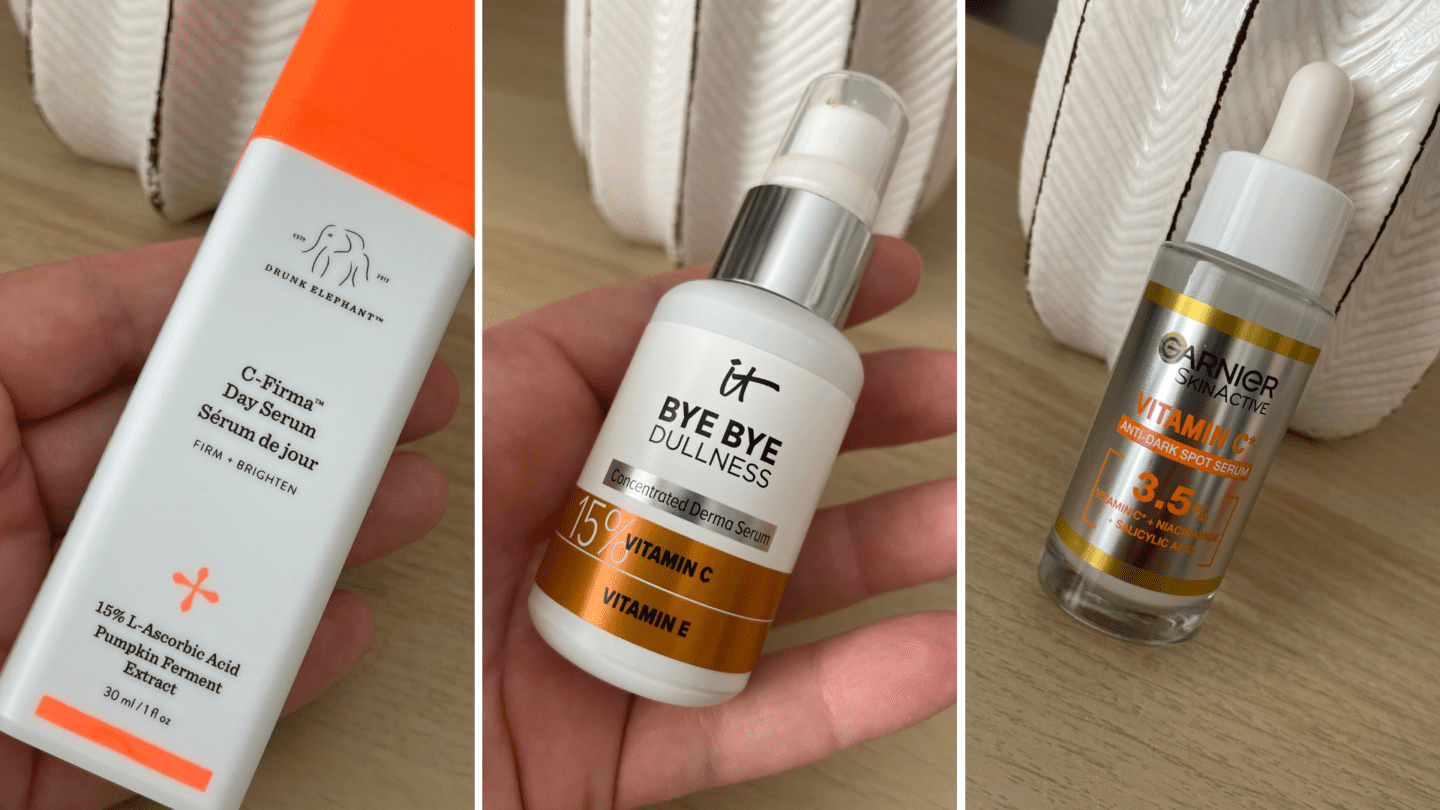If you’re already using Vitamin C in your skincare routine, then you’re most likely already seeing and feeling the benefits of this powerhouse ingredient. But if you’re new to it and aren’t sure about the benefits of Vitamin C and how you should be using it, then read on.
Did you know that humans can’t make our own Vitamin C? Instead, we have to either incorporate it as part of our diet, or apply it topically when it comes to skincare. It’s an antioxidant with many overall health benefits like helping to improve the absorption of iron, it can help strengthen your immune system, it helps to remove free radicals in the body, it helps with wound healing and there are many more benefits that are still being researched.
When it comes to the skin, Vitamin C has many benefits including
- helps to brighten the skin
- reduces hyperpigmentation
- evens out skin tone
- boosts collagen production
- protects the skin from free radical damage
- helps prevent premature aging
- hydrates the skin
- reduces the appearance of fine lines and wrinkles
- reduces redness in the skin
Who can use Vitamin C in skincare?
While Vitamin C is suitable for all skin types, if you have sensitive or reactive skin, you might find that your skin tingles, or becomes irritated when using it. It can lead to your skin becoming dry, it might peel or become red.
As Vitamin C comes in various forms, it’s important to avoid certain ones if your skin is reactive or sensitive. L-Ascorbic acid is known to cause irritation in sensitive skin, so make sure to read the ingredients of the product you’re using.
How to use Vitamin C
When it comes to using Vitamin C in your skincare routine, it’s important to use it properly so that you get the full benefits. It can be used morning and evening on cleansed skin as part of your skincare routine. If you’re using other serums in your skincare routine, a good rule of thumb to follow is to apply serums of a thinner consistency first to cleansed skin, and then layer thicker ones over the top. So if your hyaluronic acid serum is a thinner consistency than your Vitamin C serum, apply that first. If the two serums have the same consistency, then apply the serum that you want the benefits from the most.
Don’t mix Vitamin C with retinol
If you’re new to using Vitamin C in your skincare routine, then it’s best to avoid using it on the nights you’re using retinols to avoid potential irritation. You can still use them together in your skincare routine, just at different times of the day. Use your Vitamin C in the morning and then your retinol at night. However, it’s possible to use them both together at night, as long as you have products on hand to help with any irritation that might show up. It may mean starting slowly, allowing your skin to build up tolerance over the coming days and weeks. But if you’re reading this post, then chances are you’re new to using Vitamin C, in which case, keep ’em separate!
The best Vitamin C serums
Over the years, I’ve tried many products containing Vitamin C. And to get the best results, I’d recommend using a Vitamin C serum. They’ve got a high concentration of ingredients and when used regularly, can lead to visible and noticeable results.
Vitamin C serums to try

- Image Skincare Vital C Hydrating Anti-Aging Serum (€81.50) contains hyaluronic acid to hydrate along with multiple forms of Vitamin C.
- La Roche-Posay Pure Vitamin C10 Serum (€39) is a great choice for those with sensitive skin.
- Dermalogica Biolumin-C Serum (€95) contains an optimised delivery system combined with a peptide and AHA for brighter, more radiant skin.

- Olay Vitamin C + AHA24 (€44.99) contains AHA and Niacinamide to allow the skin’s radiance to come through.
- Sunday Riley CEO Glow Vitamin C + Turmeric Face Oil (€78) mixes vitamin C with ginger, red raspberry, turmeric and four oils for the ultimate indulgence to brighten and nurture the skin.
- Vichy LiftActiv Supreme Vitamin C Serum (€39) is enriched with Vitamin E and Pycnogenol, promising to brighten the skin in 10 days.

- Drunk Elephant C-Firma Day Serum (€75) contains 15% Vitamin C, along with fruit enzymes and Vitamin E to give a firmer, brighter, more even-toned complexion.
- IT Cosmetics Bye Bye Dullness (€25) contains 15% pure Vitamin C, plus Vitamin E, to bring radiance back to dull skin.
- Garnier 3.5% Vitamin C Anti-Dark Spot Serum €12.66) contains 3.5% Vitamin C, niacinimide and salicylic acid, to visibly reduce the appearance of dark spots and enhance the glow.
This is just a selection of the Vitamin C serums I’ve tried out over the years. What can I say? I love the benefits of it so much and I love testing them out! I can only ever recommend products I’ve tried myself and if there’s anything you’d like more information on, come find me on Instagram!
